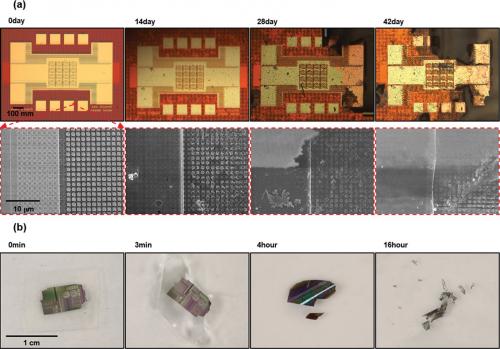
- The work builds on previous research, by the authors and others, which demonstrated that silicon—the most commonly used semiconductor material in today’s electronic devices—can dissolve in water. Although it would take centuries to dissolve bulk silicon, thin layers of silicon can dissolve in more reasonable times at low but significant rates of 5-90 nm/day.
- “The most significant finding is that there exist choices in materials, device designs and processing sequences that allow transient electronics to be produced in conventional silicon fabrication facilities,” Rogers told Phys.org. “The immediate consequence is a cost-effective, high-volume route to manufacturing.”
- Transient electronics could have a very wide range of novel applications, particular in the medical field. For example, they could be used to make catheters that dissolve; biodegradable sensors that monitor the kidney, heart, and lungs; and water-soluble electronics that monitor bacterial infections after surgery.